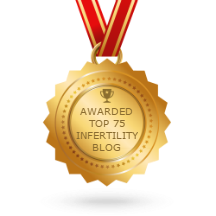
Menstrual disorders are problems that have an effect on a woman’s normal menstrual cycle. They include painful cramps during bleeding, abnormally heavy bleeding, irregular bleeding , scanty bleeding or absence of any bleeding. Menstruation happens during the years between puberty and menopause. Menstruation is also called a “period,” which is a monthly discharge of blood from the uterus through the cervix and out through the vagina. Most women have a regular menstrual cycle that is around 28 days, but anywhere between 21 days to 35 days is considered as common. Generally women bleed somewhere between 2-7 days each cycle. The most irregular periods happen during the onset of menses and at the time of menopause. However, some women experience problems with their periods in between these 2 phases of their life also.
Menstrual Disorders
There are a lot of variations in menstrual patterns, generally a women should be concerned and go for medical assistance when her periods come less than 21 days or after 3 months apart, or if it lasts for more than 7 days, as these may indicate ovulation problems or other medical conditions based on hormone imbalance, hereditary issues , clotting disorder, or pelvic diseases.
Painful periods (Dysmenorrhea)
Pain during periods is normal, but severe pain and frequent cramping is a sign of Dysmenorrhea, a menstrual issue where pain occurs in lower abdomen and can be classified into primary and secondary. Primary dysmenorrhea is the pain caused by menstruation where the womb contracts to push blood out; here the cramps can be severe along with profuse bleeding. Secondary dysmenorrhea is the pain that comes with other medical and physical condition, such as endometriosis or uterine fibroids.
Congestive dysmenorrhoea
This is similar to premenstrual tension to an extent. The woman complains of pain in the lower abdomen and backache radiating down the legs 3 to 4 days prior to the onset of menstruation. Sometimes, the bowel symptoms such as constipation, flatulence also develop.
Spasmodic dysmenorrhoea
In this condition, spasmodic or colicky pain is felt in the lower abdomen with the onset of menstruation. The severe pain lasts for about 1-2 hours and is followed by faint pain for about 10-12 hours, but this reduces once the menstrual flow is well established.
Causes of Dysmenorrhea
Primary dysmenorrhea is the menstrual pain which is caused by contractions of the uterus by a chemical called prostaglandin. If the uterus contracts too strongly, it compresses nearby blood vessels, stopping the supply of oxygen causing severe pain.
Secondary dysmenorrhea can be caused by a number of medical conditions such as endometriosis or uterine fibroids. Endometriosis is a chronic and progressive disease in which the tissue lining the uterus grows outside of the uterus onto other areas, such as the ovaries, bowels, or bladder causing pain and irregular bleeding.
Uterine fibroids are growths that form on the walls of the uterus. They can cause heavy bleeding and severe pain.
Heavy Periods (Menorrhagia)
Menorrhagia is the medical term when the menstrual flow is longer and heavier than normal. A woman is advised to consult a doctor if they have to change their pads every 1-2 hours, if the bleeding lasts for more than 7 days, where women loose about 80ml of blood as compared to 30ml during normal menstrual cycle. In this case bleeding happens between periods or during periods¬. Menorrhagia is often accompanied by dysmenorrhea because huge amount of blood flow and clots can cause painful cramping or can be without pain also.
Causes of Heavy Periods (Menorrhagia)
Hormonal imbalances-
Imbalance in levels of estrogen and progesterone can be the case of heavy bleeding it generally occurs during the onset of menses or during menopause or can occur anytime in between these 2 phases of life
Ovulation Problems–
if there is a problem with the ovulation there is an imbalance in progesterone which leads to heavy bleeding
Uterine Fibroids–
They also lead to heavy and prolonged bleeding
Uterine Polyps. Where there are some growths or structural problems in the uterus can cause unusual bleeding.
Endometriosis and Adenomyosis-
The case where the cells lining the uterus grows outside the uterus and other areas
Absent Periods(Amenorrhea)
The absence of periods may indicate an underlying health problem. In this case, a woman is advised to consult a doctor. It has been classified into two categories. Primary and secondary Amenorrhea
Primary Amenorrhea occurs where the girls do not start her periods by the age of 16 years, an examination by the doctor is advised to evaluate the case.
Secondary Amenorrhea happens when regular periods stop for at least 3 months
Causes of Absent Periods (Amenorrhea)
There are a number of reasons why Amenorrhea occurs. The most common reasons are:
Delayed Puberty –
Is a common cause of Amenorrhea where the ovaries are not developed. Also, there are genetic factors that delay the puberty.
Stress–
Can lead to longer or a shorter menstrual cycle the periods can stop or can become painful
Sudden weight loss–
Extensive sudden weight loss, restricting the calories intake severely causes hormonal imbalance required for ovulation which stops the periods.
Being overweight or obese–
Overweight produces an excess of oestrogen a hormone that regulates the reproductive system. Excess of this hormone cause irregularity in the menstrual cycle or can even stop it.
Extreme over-exercising–
Heavy physical activities can affect the hormone levels as losing a lot of fat can stop the ovulation process.
Polycystic Ovarian Syndrome (PCOS)-
In this case, the ovaries produce high levels of androgens particularly testosterone which stops the release of eggs which results in stopping of the period
Irregular Periods (Oligomenorrhea)
This is a condition where the menstrual cycles vary, based on the time between periods often greater than 35 days apart, periods may be heavy or light and the number of days the period lasts varies. Irregular periods normally occur on the onset of menses and during menopause.
Causes of Irregular periods(Oligomenorrhea)
Hormonal Changes and Puberty-
It occurs when the girl just starts their periods.
Lifestyle –
The lifestyle which can upset the hormonal balance and cause irregular periods are extensive weight loss or weight gain, excessive physical workout, and stress.
Polycystic ovary syndrome–
It occurs when very small cysts (small, fluid-filled sacs) develop in the ovaries. This is also accompanied with a higher level of male hormone called the testosterone.
Thyroid disorders –
Thyroid gland present in the neck produces hormones that maintain the body’s metabolism, a disorder in the thyroid can lead to irregular periods.
Premenstrual Syndrome (PMS)
Premenstrual syndrome (PMS) is linked to the changing levels of the hormone. It is a set of physical, emotional, and behavioural symptoms that occur a week before menstruation. Women may experience premenstrual syndrome symptoms any time during their reproductive years, but it normally occurs when they are in their late 20s to early 40s.
Symptoms of PMS
An average menstruation cycle lasts for about 28 days and ovulation happens on the 14th day of the cycle. Menstruation, or bleeding, occurs on day 28 of the cycle. PMS symptoms can begin around day 14 and last until seven days after the start of menstruation.
PMS symptoms range from mild to moderate. Nearly 80% of women report one or more symptom that does not significantly affect daily life.20%-30% of women report moderate to severe symptoms that affect some aspect of life and the remaining 8-10% of women report PMDD. The severity of symptoms can vary by individual and by month. The symptoms of PMS include:
Symptoms of PMS
An average menstruation cycle lasts for about 28 days and ovulation happens on the 14th day of the cycle. Menstruation, or bleeding, occurs on day 28 of the cycle. PMS symptoms can begin around day 14 and last until seven days after the start of menstruation.
PMS symptoms range from mild to moderate. Nearly 80% of women report one or more symptom that does not significantly affect daily life.20%-30% of women report moderate to severe symptoms that affect some aspect of life and the remaining 8-10% of women report PMDD. The severity of symptoms can vary by individual and by month. The symptoms of PMS include:
| · Abdominal bloating | · Sensitivity to light or sound |
| · Abdominal pain | · Fatigue |
| · Sore breasts | · Irritability |
| · Acne | · Changes in sleep patterns |
| · Food cravings, especially for sweets | · Anxiety |
| · Constipation | · Depression |
| · Diarrhea | · Sadness |
| · Headaches | · Emotional outbursts |
Causes of Premenstrual syndrome (PMS)
The accurate cause of premenstrual syndrome (PMS) is not fully understood, but a number of things may contribute to the symptoms.
Chemical changes in the brain–
Due to hormone level changes during the menstrual cycle may affect the level of certain chemicals in your brain, such as serotonin, this is known to help control your mood and make you feel happier so a reduction in the level of this chemical can get the mood swinging.
Eating Habits –
Eating too much or too less of certain foods can contribute to PMS like consumption of salty food, alcohol and caffeinated drinks and low levels of vitamins and minerals can disrupt the mood and energy levels.
Treatment of the Menstrual Problems
Treatment of the Menstrual Problems varies depending on the underlying cause. Like hormonal imbalances can be treated with the supplemental or synthetic hormones which helps in regularizing the hormone levels. The doctor analyses the condition based on the internal examination, ultrasound, and tests and comes up with a plan to treat the problem by way of medication or surgery. The doctor may also suggest changes in the lifestyle related to your weight and exercise routine, refer you to a nutritionist if need arises to lead a healthy and active life
What you can do
If you face any menstrual issues you should consult your doctor immediately, so that they can diagnose and manage the cause of your menstrual problem. You need to in turn make sure that you strictly follow the treatment plan and attend all follow-up appointments. Contact your doctor if your condition doesn’t get better with medical treatments or lifestyle changes.
Why Shrikhande hospital for menstrual problems
When you face any issues with your periods you should not leave it unattended and you should only go for specialists care. We at ShrikhandeIVF have only specialists’ physicians who offer comprehensive care in women health care. Our centre is equipped with the latest facilities to ensure special treatment and quick recovery for the patients. With over 30 years of experience in gynaecology and urology, we are well capable of treating any kind of menstrual disorder.




 (+91) 880 557 7600
(+91) 880 557 7600
 Abhyankar Road, Dhantoli, NAGPUR-12
Abhyankar Road, Dhantoli, NAGPUR-12





